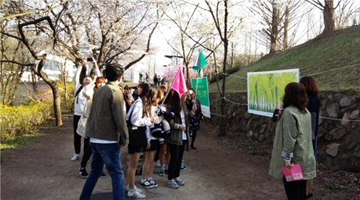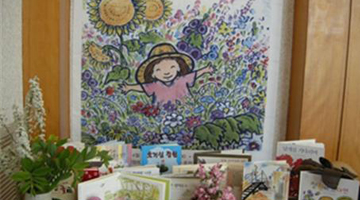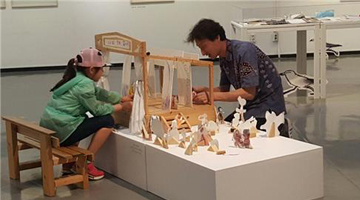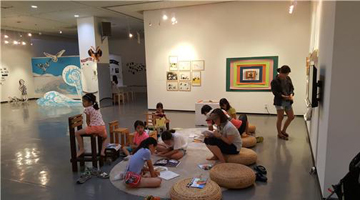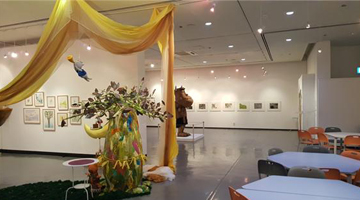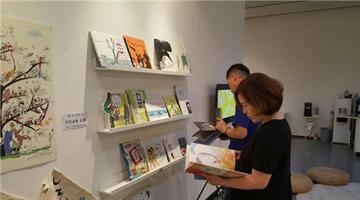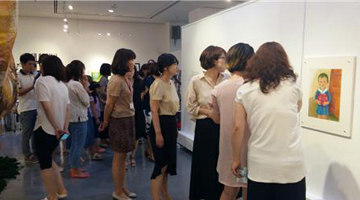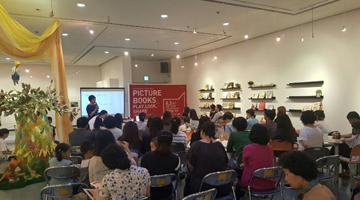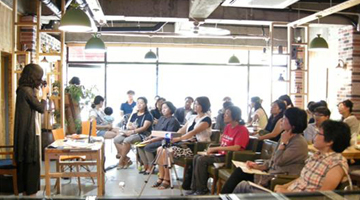1. When was Social Cooperative Picture Book City established?
Social Cooperative Picture Book City was established as a legal entity, using an old bus that was not in service. In 2004, that bus of 45 seats was modified into a space where picture books for kids and children were featured.
With the selfless dedication and cooperation of picture book artists and activists, Social Cooperative Picture Book City has been renovated into a space where Wonju citizens appreciate culture in their everyday life.
To help have many citizens feel charmed and touched by picture books, picture book artists and activists have picked up and read books for citizens.
Picture Book City regularly invites picture book artists, holds sessions for drawing and producing picture books while talking with artists and getting their help. With citizens, it draws pictures of interesting scenes about a particular subject with the help of invited artists and holds picture book events. Enjoying marionette shows and working on picture book arts are also one of Picture Book City’s activities. Picture Book City holds seasonal exhibitions of Scenes Striking a Cord in Picture Books in spring, summer, fall, and winter. It also offers events of ‘Delicious Picture Book Reading’ and ‘Reading Picture Books Staying up all Night’.
As time went on, its programmes and activities accumulated and became assets that benefit citizens and picture book artists and activists. As a social cooperative, Social Cooperative Picture Book City agreed to form a more integrated community that expands our presence into every part of citizens’ life and that also benefit many more citizens. Besides, it also agreed to have citizens appreciate and engage in everyday culture life of more professional picture books.
2. What is the establishment purpose of Social Cooperative Picture Book City?
Social Cooperative Picture Book City was established to;
• develop and run culture and art education programmes.
• produce an archive of storytelling data about Wonju local areas’ historic figures and publish picture books of various figures and subjects.
• offer educational programmes to and train class takers. This is to have them become professional instructor.
• carry out Wonju’s local culture projects.
• contribute to the development of Wonju through the establishment of picture book-dedicated library as well as picture book-related facilities, and also through many other programmes that are offered in these facilities.
3. A Brief Look at Who Social Cooperative Picture Book City is
• 2 January 2013: Registered as a legal entity under Sustainable Development Association of Wonju
• 1 June 2013: Designated as Candidate for Social Cooperative
• August 2013: Registered also as a legal entity for publication
• 20 October 2014: Officially approved as a social cooperative, Social Cooperative Picture Book City, by the Ministry of Culture, Sports, and Tourism
• 2014: Signed a Memorandum of Understanding for Corporation-University Collaboration with Seoul Institute of the Arts
• 27 July 2015: Certified as an official social cooperative by the central government
• 28 June 2016: Signed an agreement about cooperation with Wonju Cultural Foundation
• 17 February 2017: Registered also as a social cooperative that can run book cafe(food and beverage sales) and sell books and magazines in retail and wholesale
• 18 August 2017: Signed an agreement about work cooperation with Seocho Culture Foundation of Seoul
4. Key Projects
• Developing culture and arts education programmes and provide educational classes to citizens of all ages.
• Developing a variety of picture book contents and programmes.
• Producing, publishing, and selling picture books.
• ∙Helping expand reading culture campaigns.
• Supporting culture events of Wonju.
• Giving libraries across Korea counselling about how to effectively run picture book libraries and offer picture book-related policy suggestions.
• Giving picture book arts education to students of alternative schools.
• Providing socially vulnerable class with support projects of picture book arts education.
5. Photos of Events, Exhibitions, Classes, and Lectures.

